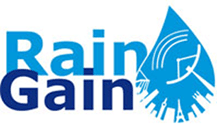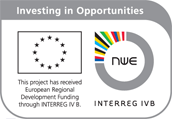Objectives and Actions
Climate change and rapid urbanisation will result in increasing water management problems in urban areas throughout this century. Urban areas in North-Western Europe are especially vulnerable due their high population densities and high concentration of industrial and infrastructural assets. The most important challenge is to obtain reliable data and predictions on rainfall events at urban scale, which are currently unavailable.
OBJECTIVES
The RainGain project seeks to obtain detailed rainfall data at an urban scale, to use these data to analyse and predict urban flooding and to implement the use of rainfall and flood data in urban water management practice to make cities more resilient to local rainfall-induced floods.
ACTIONS
Weather radars are the only measuring devices that provide estimates of rainfall in time and space. In the RainGain project, four different types of radar techniques will be tested in four pilot cities: Leuven, London, Paris and Rotterdam.
The fine-scale rainfall data will provide urban water managers with detailed peak rainfall information at temporal and spatial scales appropriate to the fastness of urban run-off processes. The information will be applied in flood prediction models at pilot sites to identify flood-prone locations and develop effective solutions for better flood protection (such as early warning systems and optimised, real-time storage basin operation). These will be tested based on the detailed rainfall data and flood models. The end users of the rainfall equipment, data and models will be trained so they will be able to take over the project deliverables and to resume responsibility in operation and management.
Learn more about the four work packages of the RainGain project:



